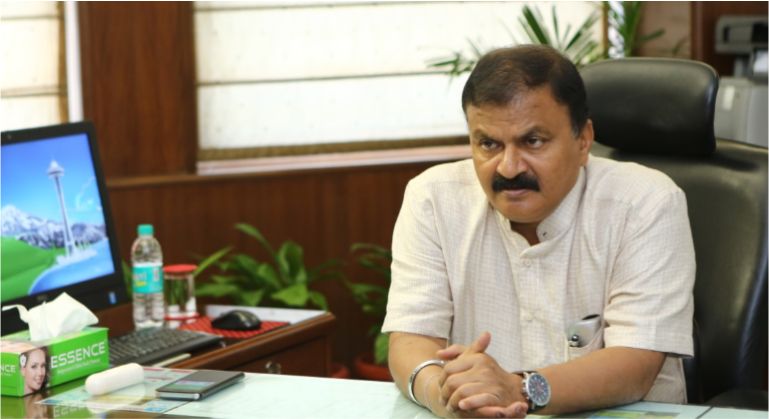The government of India is planning to form a committee of some of the biggest personalities in the Indian startup and technology ecosystem, which will provide advice and knowhow on developing its rapidly-growing digital economy and combating persistent challenges.
The Startup Advisory Council will be made up of Bhavish Aggarwal, founder of ride-hailing firm Ola, Byju Raveendran, founder of ed-tech platform Byju’s, Nandan Nilekani and Kris Gopalakrishnan, cofounders of Infosys, and several prominent global and home-grown venture capital investors, such as Siddarth Pai, the founding partner of 3one4 Capital.
In addition, the Council will also have several government officials and regulators representing it. A senior government official said, “It was felt that there should be a structured way in which the government engages with startups at regular intervals. So, we’re arranging the concerned people who deal with startups from the relevant ministries, people from the startup ecosystem — be it entrepreneurs, investors and thought leaders.”
The plan for creating the council was discussed at the 2019 Global Venture Capital Summit in December, organised by the Department for Promotion of Industry and Internal Trade (DPIIT) and the Goa government.
The two-day summit saw several closed-door meetings between industry representatives and policymakers, where veterans in the industry discussed their requirements and expectations from the lawmakers.
According to reports, the private equity and venture capital industry in India had asked domestic pension funds to allocate 1% of their total assets to alternative investment funds, last month. It had also suggested creating a number of startup-focused fund-of-funds powered by the government, in order to leverage such investments.
Furthermore, the Indian Venture Capital Association (IVCA) has also asked for tax breaks to be provided as incentives for creating such pools of domestic capital. The first meeting of the council is supposed to be held before the upcoming Union Budget, which is expected to address several issues plaguing the startup sector. The chief among these will include exempting investors from capital gains tax in order to promote redeployment of capital into startups, and taxation of employee stock ownership plans (Esops) only when the sale takes place, instead of when the shares are vested.
The initiative to set up the Startup Advisory Council is in line with the DPIIT’s Startup India Vision 2024, which has laid out a number of possible steps to reduce compliance time for startups, and improve regulatory requirements for entrepreneurs. It also enumerates a number of measures to promote startups, such as setting up 500 incubators and accelerators, enhancing debt financing facilities, and deploying the entire corpus of Rs 10,000 crore fund-of-funds.
Reports also state that DPIIT has been in discussion with finance and corporate affairs ministries, the Sebi and the RBI, regarding multiple regulatory changes with regards to startups.
DPIIT secretary Guruprasad Mohapatra had said, “We are working on regulatory changes that would aim at easier incorporation of a company, easier compliances, reduction of tax compliance to less than one hour per month.”










